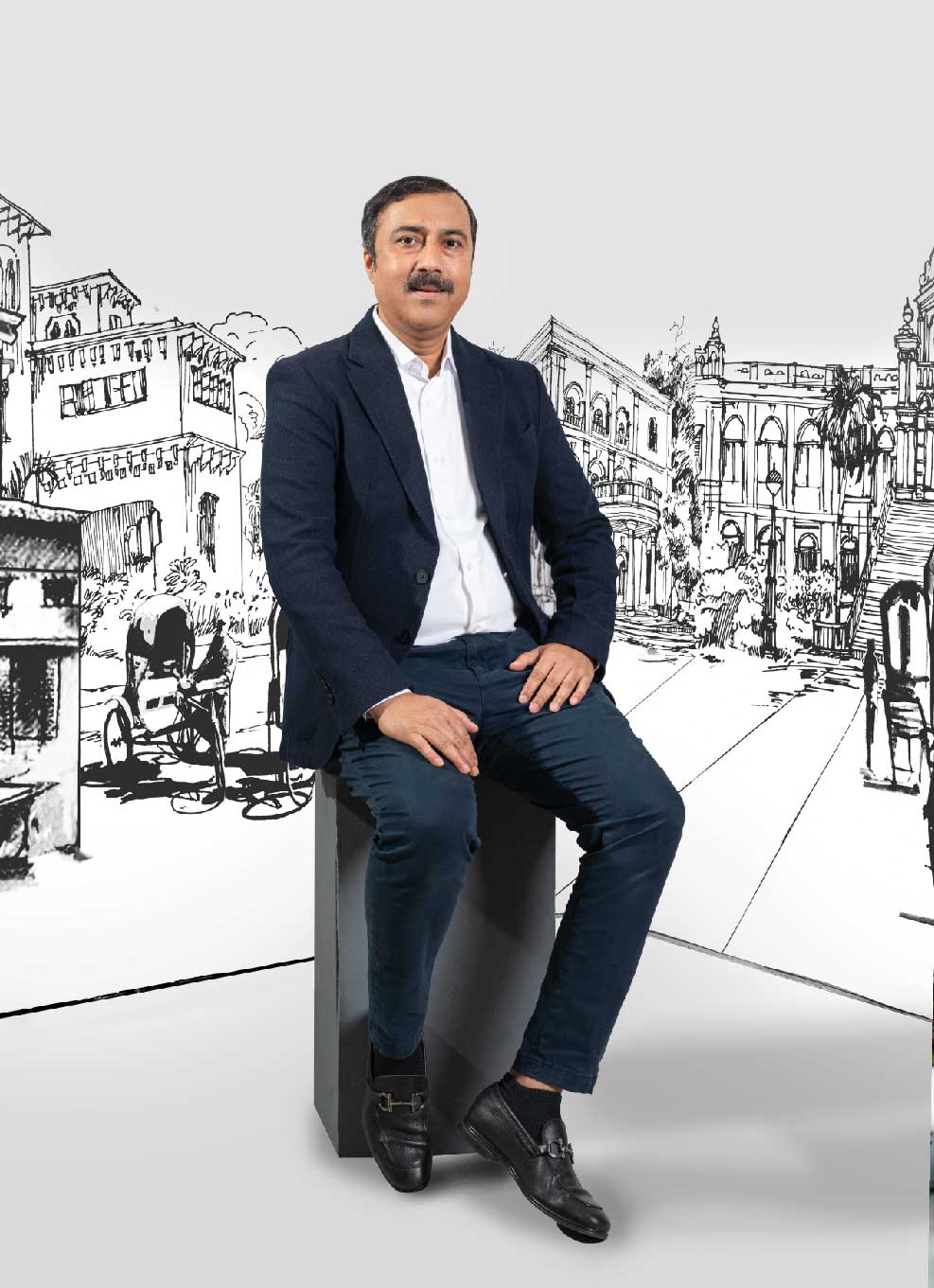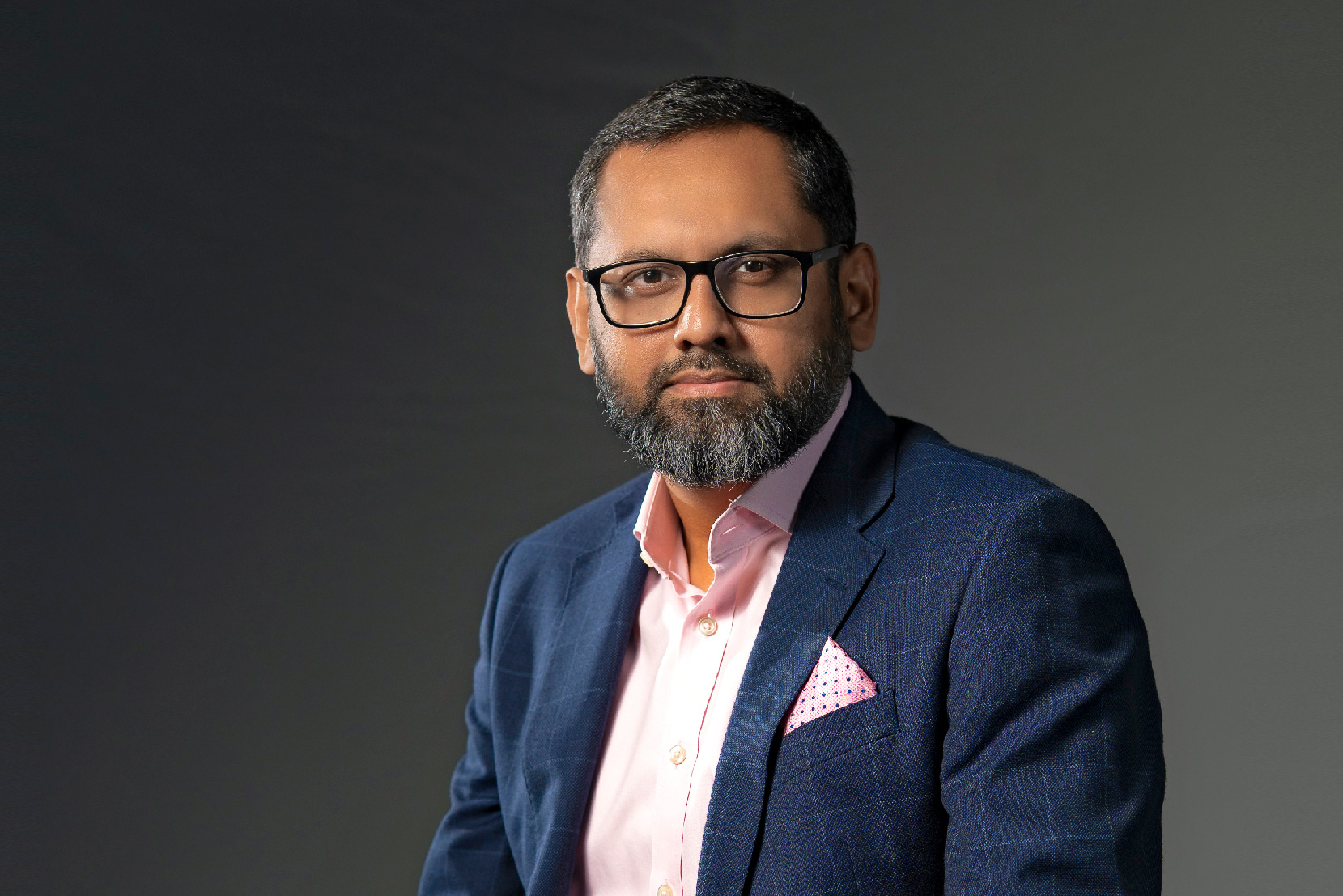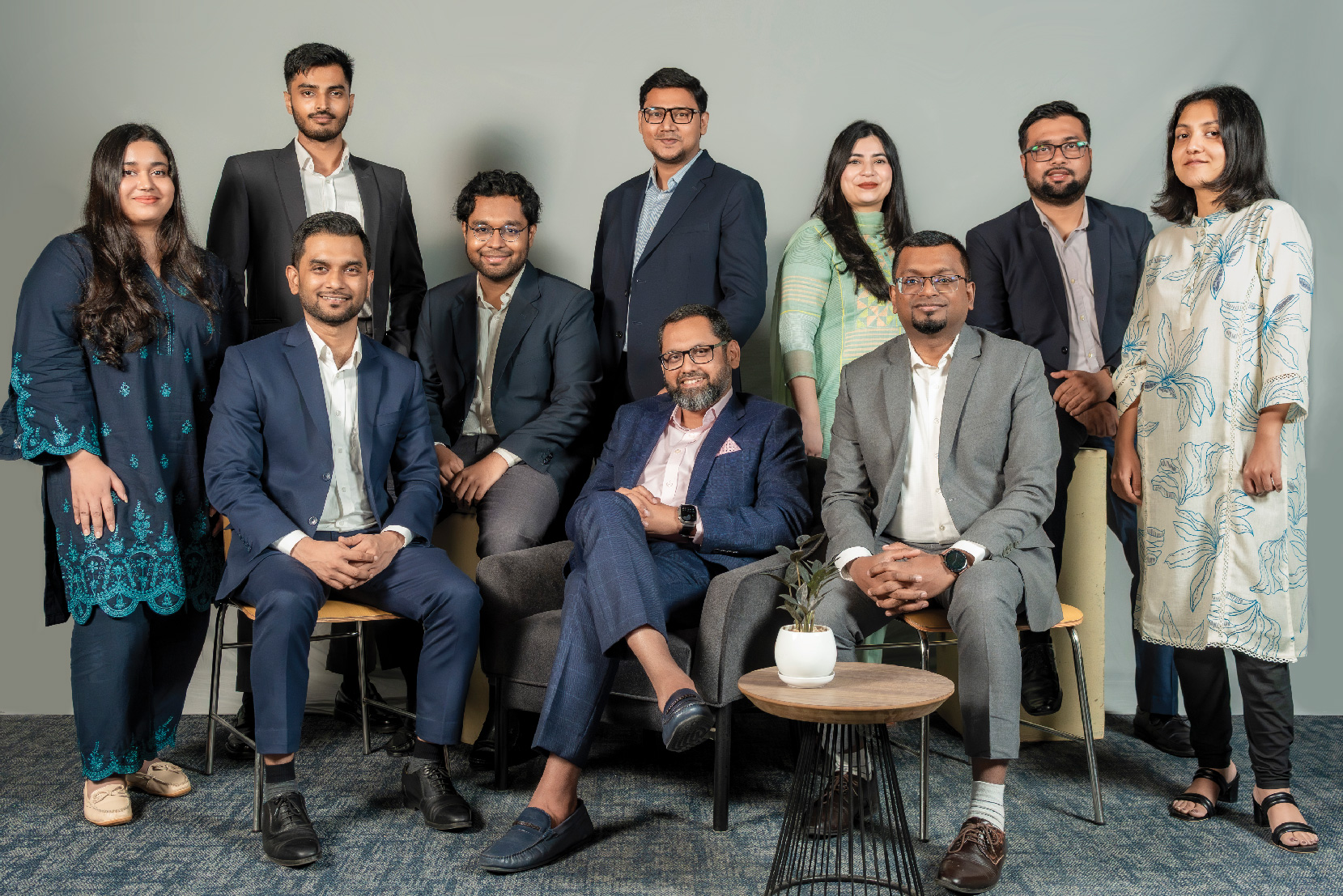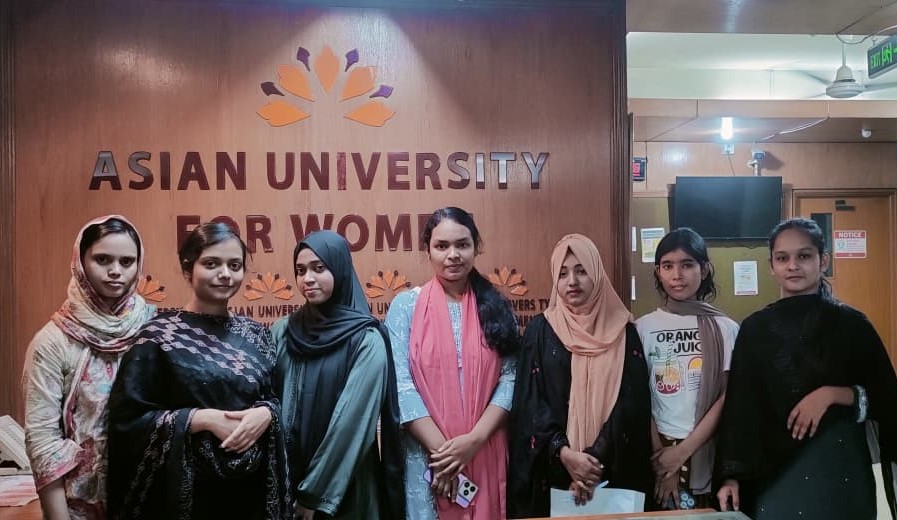An engaging conversation with Ashikur Rahman Tuhin, Managing Director of TAD Group, where he proposes viable solutions to overcoming the existing challenges of sustainability, skilled human resources, and branding opportunities in Bangladesh’s RMG industry.
What core values have helped TAD Group and its businesses achieve success?
TAD Group has a portfolio of several businesses, all of which are related to the local business field while also focusing on international markets. The first company was Texweave, established in 2000, but this was before the formation of the group. But soon after, as new, differentiated and diversified businesses were being launched, it seemed obvious that it was necessary to unify everything. So, the holding company, TAD, was born. It became the parent of Texweave, TAD Sourcing Ltd., TAD Logistic Ltd., TAD Engineering, TAD Autos, TAD Aviation, export-oriented apparel factories Macy’s Garments Ltd. and Replica Creations Ltd., local retail Klothen, and bubble tea shop KOI Thé.
TAD Group is fully committed to a larger goal of enhancing the standard of living of people, particularly that of the marginalised. TAD Group believes that only through the enrichment of the lives of its people will our nation be able to tap into its true potential and achieve the overall objective of continuous growth and development. Accordingly, one of the core values of the group is ‘Respect for the Individual’ and the group as a whole ensures that it adheres to all statutory regulations pertaining to ‘Occupational Health, Safety and Environment’, along with gender and age-specific issues of employment.
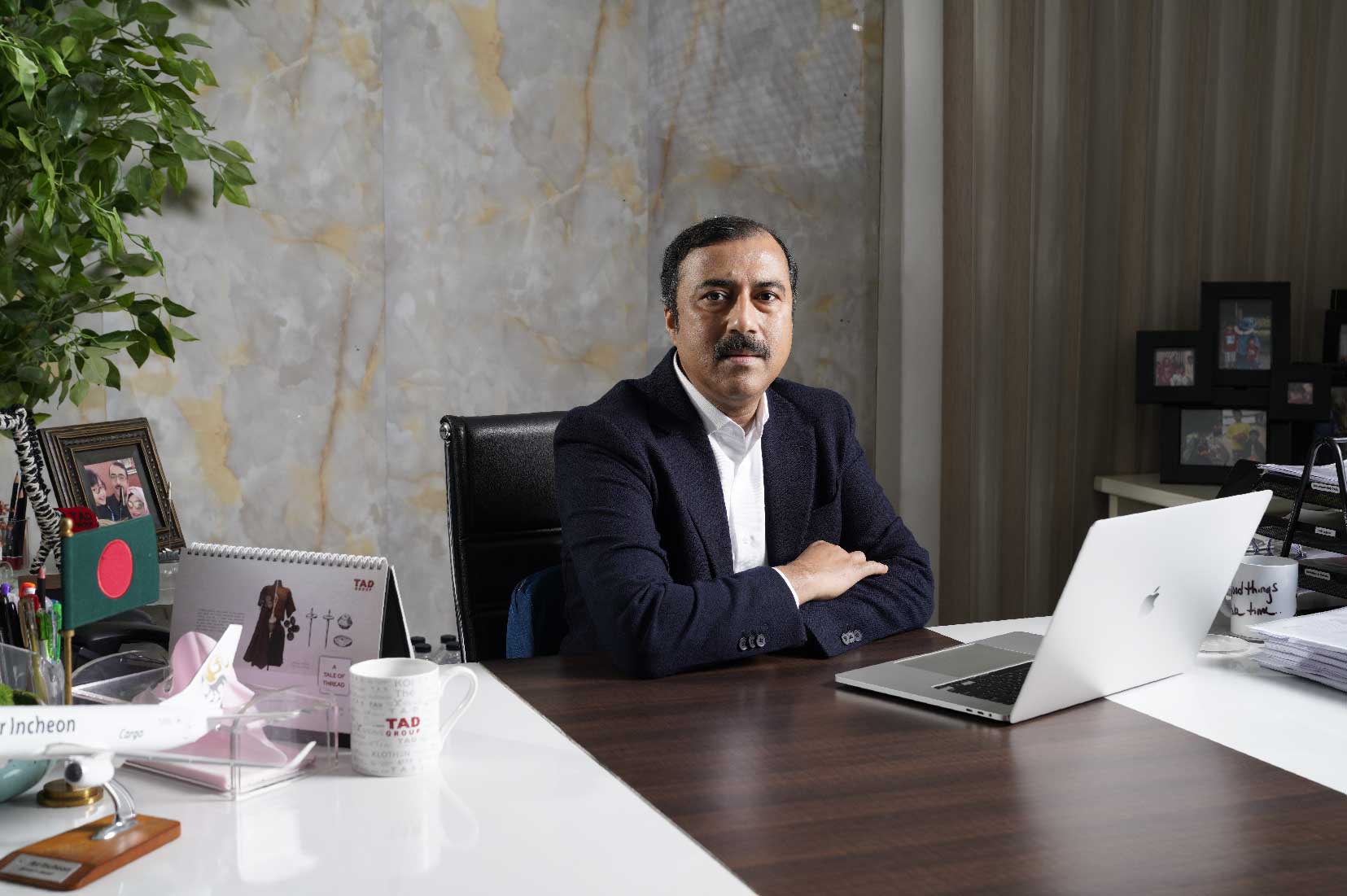
Managing Director
TAD Group
How is TAD Group leading the way in sustainable practices within the Bangladeshi RMG industry?
TAD Group believes that in order for a company to run a truly sustainable business, it should be responsible towards both the planet and its people. All operations of the group ensure strict adherence to emission regulations while also being aligned with the core principle of a decent work environment. To give just a few examples, all of the RMG concerns of TAD Group ensure that occupational health and safety practices are maintained at the respective workplaces. The group provides free sanitary napkins to all its female apparel workers, conducts regular training and educational seminars on their reproductive and mental health and houses daycare centres to look after factory workers’ children.
How could Bangladesh prepare itself for the new ‘sustainability rules and regulations’ to be imposed by its export destination countries?
Bangladesh, as a major apparel exporter to the European Union (EU), must be aware of the new specific measures and regulations that the EU plans to implement by no later than 2030. The proposed EU rules put emphasis on empowering consumers by setting up strict controls on ‘greenwashing’. In this backdrop, practising sustainable and circular production is no more a choice but rather an imperative for Bangladesh’s apparel industry to sustain its exports.
The EU accounts for about 60 per cent of Bangladesh’s total apparel exports. Now, in recent years, Bangladesh’s apparel industry has made commendable strides in safety and sustainability. However, as far as sustainability is concerned, adhering to the new EU Strategies means a lot more has to be installed and implemented in Bangladesh’s apparel industry. So with regard to our preparedness, I would stress the importance of raising awareness, increasing dialogue between manufacturers and buyers, and most importantly, conducting more meetings with policymakers in the EU, both from the government side as well as the industry side.
TAD Group believes that in order for a company to run a truly sustainable business, it should be responsible towards both the planet and its people. All operations of the group ensure strict adherence to emission regulations while also being aligned with the core principle of a decent work environment.
How could our RMG industry meet the demand for skilled human resources?
If there is an open discussion on what the current objectives should be to take the Bangladeshi apparel industry to the next stage, there are likely going to be different and diverse opinions. But, in my view, one of the utmost priorities now for the industry’s progress is improving fashion design skills.
By offering new designs engrained in creative innovation, manufacturers can secure their business in two ways. First, if their design is selected by the buyer, they will hold the upper hand in price negotiation. Second, since it is cost-effective for the buyers to get the designs from the manufacturers instead of maintaining a large design team by themselves, buyers gradually become dependent on the suppliers or manufacturers who offer them design services.
Though Bangladesh is the second largest apparel exporting country in the world, unfortunately, the reality is that competent designers are still scarce in the country. In Bangladesh, institutes like BGMEA University of Fashion and Technology (BUFT) and Shanto-Mariam University of Creative Technology produce fashion design graduates to serve the industry. Now, it is high time that the government took steps to introduce a fashion design department in all major public universities of the country.
Apparel events like seminars, summits and roundtables are now countless in Bangladesh. But we have hardly seen any slots dedicated to fashion design in such events. Since design is such an integral part of the export-oriented apparel industry, making a pool with the most impressive fashion designers currently working in the industry would be a productive idea. This pool of fashion designers will then run workshops for other aspirant fashion designers and BGMEA could take the lead on this.
How can we better brand ‘Made in Bangladesh’ to the world?
The Bangladeshi apparel industry has undergone tremendous transformation in the last decade. A significant transformation regarding health and safety has been done through an unprecedented collaboration of global brands and retailers, manufacturers, government, the ILO, development partners, as well as local and global unions. I will not argue that our apparel industry is now entirely clean and perfect. But it would not be an exaggeration to say that Bangladesh’s apparel industry is now one of the safest and most sustainable in the world.
To better brand ‘Made in Bangladesh’, our national media can play a key role. They can highlight the positive stories of the industry. In today’s age of digitalisation, every success story is a powerful narrative which, when told through digital reports in our national media will be readily available online and highly accessible to Western audiences. International media also often takes cues from our national media. Thus, if we focus more on the victories and flood our national media with stories of success, particularly given how powerful our social media is, it will be difficult for international news outlets to mislead the readers.
In addition, we need to organise and participate in international apparel events and showcase our stories. BGMEA has already taken this initiative. In 2022, The BGMEA organised a ‘Made in Bangladesh Week’ in Dhaka, and, in 2023, the ‘Bangladesh Apparel Summit’ in Melbourne, Australia. It is my hope and belief that in the coming years, more such branding initiatives will be implemented. Many countries uplifted their global positions through branding and image-building of their nations that dramatically fueled their economic growth. Storytelling and branding around emotions deliver a faster return on investment than a cheap product can.
Photographs by Mohammad Arif










